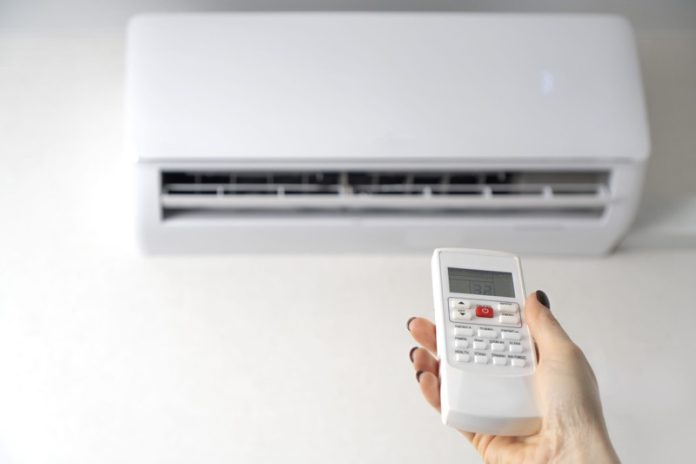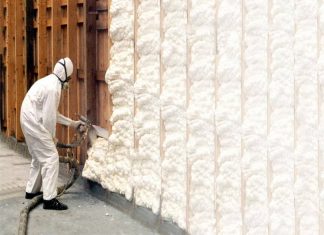Your AC is an essential part of your comfort during summer, but what should you be considering before changing your air conditioner capacitor? One of the most common reasons for a malfunctioning AC system is a failing capacitor. However, if you discover your capacitor is broken, replace it before the problem worsens.
But there are a few things to consider before doing that. If you think you need help replacing your capacitor, read more.
What is the capacitor?
A capacitor is a specific part of an AC system that releases electricity to the compressor, the outside fan, and the blower. The capacitor looks like a shiny cylinder, and it is connected to the air conditioner motor to provide energy and get the system running when necessary.
If it breaks, the system will not be able to work correctly or will have to work harder to make the air circulate. This can result in higher consumption and higher energy bill, the faster wearing of the system, and eventual damages if the situation persists for too long.
Capacitors are responsible for giving the initial electricity jolt to the air conditioner at the moment of start-up. It is capable of storing electricity and can send it to the motor in a higher amount when it is the moment of starting up.
The AC system is designed this way because the house electric system will not be able to supply a burst of electricity when it is time to start the air conditioner or when the system has to perform other functions.
In addition, when the system has already started to work, the capacitor can reduce energy output and provide enough electricity just to get it running.
What should you consider before replacing your AC capacitor?
Before changing the air conditioner capacitor, you should consider the following things:
- Is the capacitor broken or malfunctioning?
- Should you change the capacitor yourself?
- Or, should you let a professional do it?
You should be able to detect when a capacitor needs replacement and judge whether or not you should be the one changing it or let a professional do it.
How can you recognize if the capacitor is not working?
1. Signs that the capacitor is broken or malfunctioning?
Although homeowners are generally not trained technicians, there are still signs and clues you can spot that will tell you if there is anything wrong with the capacitor.
Here are some of the signs to look for:
- No cold air is coming out of the air conditioner
- Higher energy bill
- Humming noises coming from the air conditioning
- The air conditioner tends to turn off alone
- The air conditioner doesn’t turn on, or there is a delay when turning on
The most obvious sign of a problem with the capacitor is the lack of cold air. This is the first sign that there is something wrong. The increased energy bill is another clue that the capacitor has a problem. It signifies that your system is running harder than it should.
In most cases, noises coming from the AC system are bad news, and it might have something to do with the capacitor. Indeed, it has to be inspected by a professional to make sure that everything is ok.
If the HVAC system is old, it is just a matter of time before a component breaks. If the system is quite old, it is necessary to have regular inspections to make sure the capacitor is not failing or about to fail.
Similarly, if the system is not turning on immediately or not turning on at all, the capacitor might be responsible for it.
2. Should you change the capacitor yourself?
Capacitors are considered high voltage batteries or devices and can be dangerous if not carefully managed, taking all the necessary precautions. Touching a capacitor could lead to severe injuries or even death without taking the required protection.
This is why it is advisable to call a professional who knows how to replace a capacitor properly. In addition, capacitors are wired to the air conditioning system, so opening the air conditioner, removing the old capacitor, and inserting a new one is not just a matter of opening the air conditioner.
If you want to change the capacitor yourself, you have to be very careful and take safety precautions. Here are some of the things to keep in mind:
- Don’t the capacitor terminals
- Do not use other metal to touch the capacitor terminal
- Always turn the power off
How often should you replace the AC capacitor?
A capacitor can last for many years, and you may only require replacement every 20 years or so. Capacitors have a fairly long life span; however, several factors might shorten their lifespan, such as heat exposure or improper parts.
However, if you maintain your air conditioner correctly and regularly do the yearly maintenance, it is possible to prolong the capacitor lifespan.
Can a bad capacitor hurt my air conditioner?
A capacitor will deteriorate until it cannot anymore hold a charge, and if that happens, it is common to hear a clicking or humming sound coming from the air conditionerA specialist should be contacted at this point to avoid the motor from failing.
There is a serious risk of ruining and burning the motor if you keep running the air conditioner. If this occurs, you will also need to replace the engine, which would be significantly more costly.
But running an air conditioner with a malfunctioning capacitor can damage other parts of an air conditioning system like the compressor.
Conclusion
The capacitor is an important component of an air conditioner, and it must be replaced when the system becomes too old. Although it is feasible to change a capacitor on one’s own, it is not recommended because it might be dangerous for someone who is inexperienced.
If you need help replacing your capacitor or if you are unsure whether it should even be replaced, don’t hesitate to contact a professional.















